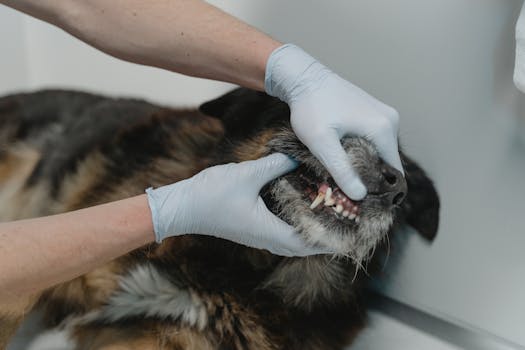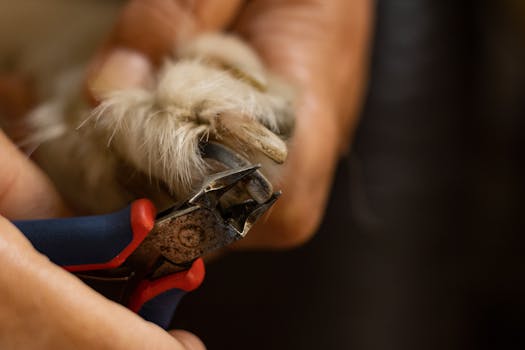Why Are California's Animal Shelters Killing So Many Pets?
Blame lingering pandemic-era restrictions that make it harder for people to find a dog or cat they'd like to adopt.
| 12.15.2023 8:00 AM
As I write this column, Marigold—my long-haired orange tabby who demands constant attention—is purring next to me. She's a delightful creature that I adopted at a local shelter's Five Dollar Fridays, where they adopt out vaccinated and spayed adult cats for that modest fee. I got her (and Fluffy) when my wife was out of town, so she's now forbidden me from visiting a shelter alone.
I don't blame my wife for setting some ground rules, given that I can't wander through the aisles of forlorn animals and not bring at least one home. So I've been filled with disgust at California's government-funded animal shelters, which claim to be models of compassion but really are killing fields that euthanize many healthy and adoptable animals.
In Orange County, critics complained that high euthanasia rates were the result of limited government resources. As a result, the county in 2018 opened a new $35-million Animal Care shelter in Tustin that includes all the cool features (dog runs, play areas) lacking at the decrepit former facility. One news report compared it to a five-star resort and noted that it had a paid staff of 140 plus 400 volunteers. That's quite the operation.
Yet The Orange County Register's Teri Sforza reported on data analyzed by a former volunteer and found the "kill rate for adult dogs…has nearly doubled since 2018, and the amount of time they spend behind bars has jumped 60 percent." During the pandemic, the shelter stopped walk-in visits and required appointments. That was understandable then, but even after the pandemic ended the shelter continued focusing on appointments and requiring accompanied visits.
Obviously, fewer people will fall in love with a purring or barking buddy if they can't wander through the kennels and see which animal pulls at their heartstrings. You can no more pick out a pet based on a shelter's photo than you can pick out a spouse solely on their dating website bio. Animal Care increased the number of walk-in visits amid criticism, but it's still absurdly limited and I gave up trying to get info after a really long wait on its phone line.
The bureaucrats who run the facility—the largest municipal "animal-care" operation in the West—depict these customer-unfriendly, animal-harming policies as a means to protect the critters from stress and protect the public from animal bites. In reality, it's just the latest instance of government putting the employees' convenience above the public good—like the way public schools and teachers' unions dragged their feet on school re-openings.
A county grand jury report this year pointed to "excessive euthanasia rates, poor leadership, inadequate numbers of animal care attendants, a lack of cooperation between staff departments, the exclusion of kennel staff from euthanasia decisions, the lack of proper assessment of animals chosen for euthanasia, and low morale negatively impacting the operation of the shelter."
The problem isn't just in Orange County, of course. A recent investigation from the Los Angeles Times found that two Los Angeles County shelters (Palmdale and Lancaster) had dog kill rates that "have nearly doubled in recent years—from about 15 percent in 2018 to 28 percent through this August." Other county shelters have done a better job, but it's still discouraging.
In 2020, Gov. Gavin Newsom declared that, "We want to be a no-kill state." He allotted $50 million to the endeavor. But, as The Sacramento Bee reported in October, "Three years and tens of millions of taxpayer dollars later, California animal shelters are euthanizing more healthy, adoptable dogs and cats than ever." The newspaper noted most of the money ended up going to the UC Davis Koret Shelter Medicine Program, "to be spent on developing ways to reduce animal euthanasia."
That is sadly typical of the government and this governor in particular. Make some grandiose promise. Allocate tens of millions of dollars. Spend it studying the problem rather than reforming the agencies that are responsible for fulfilling the mission. Any animal lover can, for much less money, tell you how to reduce euthanasia.
For starters, get rid of unneeded pandemic policies and let people roam through the kennels again. "Animal shelters across the state continue to retain a pandemic mindset," according to the Bee's summary of a conversation with the head of an animal advocacy group. "Those interested in taking an animal home must make an appointment first" and shelters "have also cut back on other programs, such as adoption outreach and foster care."
There's no excuse for these restrictions long after the pandemic ended. Meanwhile, animal-care officials make excuses about increased animal abandonments and strays, but they are well-funded to handle it. (This is their job, after all). But bureaucracy rarely results in creativity and compassion. That usually means wasted tax dollars and inefficient public services. It's so sad when it means more lovable cats like Marigold will simply be euthanized.
This column was first published in The Orange County Register.











